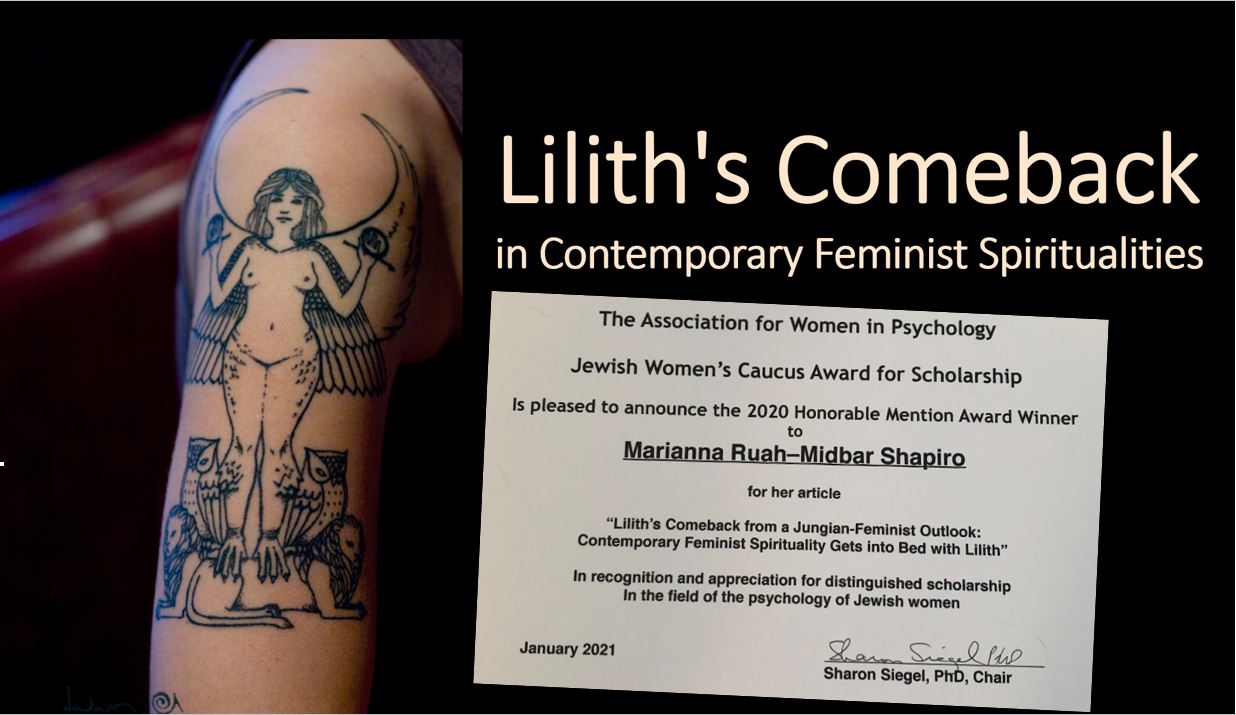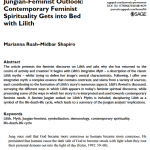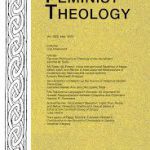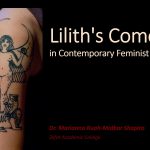This prizewinner article is a feminist hermeneutical research of Lilith’s myth, from a Jungian viewpoint.
It was announced (January 2021) “the 2020 Honorable Mention Award Winner” by The Jewish Women’s Caucus of the Association for Women in Psychology (read about AWP and about JWC). For the award – click here.
In addition to this article, there are more items – an article and lectures that present the research project on Lilith. See links below.
Abstract
“Jung once said that God became more conscious as humans became more conscious. He postulated that humans cause the dark side of God to become struck with light when they rout their personal demons out into the light of day.” (Clarissa Pinakola Estes, in her book Women Who Run with the Wolves, pp.59-60)
In the Judeo-Christian tradition, Lilith appears as a satanic force, as an instigator of people, as one who denounces and brings them devastation. As of the 1970s, Lilith has made a comeback in feminist spiritual discourse, but her image is no longer depicted as solely negative.
In this paper, I provide an explanation for her prosperous presence within today’s spiritual discourse. I argue that Lilith’s myths may be viewed as a parallel for the Skeleton Woman stories, and, following a Jungian analysis, conclude that she expresses the life-death-life archetype. Thus, her appearance embodies a time of change, the anxiety it evokes, and a deep unconscious understanding that surrendering to the process is inevitable as well as blessed.
Lilith’s intensive reappearance in feminist spirituality portents an acknowledgment of the need for change, in terms of cultural and spiritual values, by embracing the life-death-life archetype namely, getting into bed with Lilith.
Author
Marianna Ruah-Midbar Shapiro
Links
Year
2019
Language
English
Academic/Non-academic
Academic item
Publisher/Source
Feminist Theology has been published since 2009, at Sheffield Academic Press. It is one of the best sceintific journals combining gender and religious studies.
2016 SJR Ranking – Q1 in the Religious Studies category; and also associated with the Gender Studies category.
Bibliographical citation
Ruah-Midbar Shapiro, Marianna, “Lilith’s Comeback from a Feministic Jungian Outlook: Contemporary Feminist Spirituality Gets into Bed with Lilith”, in Feminist Theology 27.2 (January 2019): 149-163.










